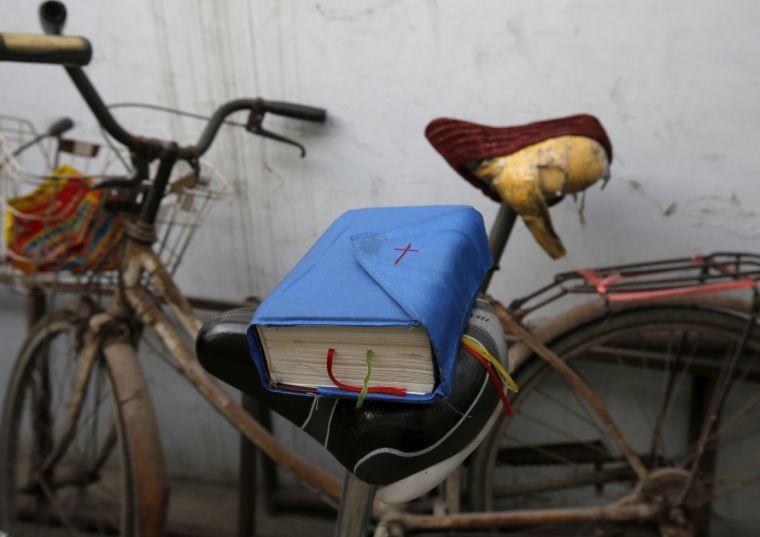Setback in Vatican's attempts to improve relations with China as underground bishop refuses to retire
An aging 'underground' Chinese Catholic bishop faithful to Rome has reportedly declined a request by the Vatican to retire and be replaced by a bishop favoured by the Chinese government.
The disagreement marks another setback for the Vatican's attempts to resolve the split between underground Chinese bishops and the government-recognised Chinese Patriotic Catholic Association.

It comes after a Vatican delegation asked two prelates, Bishop Peter Zhuang of Shantou and Bishop Jospeh Guo Xijin of Mindong, to retire or accept demotion in order to smooth relations with the Chinese government, the Catholic Herald reported.
The Catholic Church in China is split between an underground Church and the officially recognised Chinese Patriotic Catholic Association, to which every bishop recognised by Beijing must belong.
According to the Catholic News Agency (CNA), the Holy See's negotiations with the Chinese government could eventually lead to Vatican recognition of seven illicitly ordained bishops aligned with Beijing. The Holy See could be pursuing China's official recognition of 20 bishop candidates appointed by the Vatican, some of whom have already been secretly ordained, in addition to state recognition of up to 40 bishops in the underground Catholic community.
Pope Francis is seen as trying to improve relations with China and allow a Chinese Catholic Church to flourish, but many underground bishops, priests and lay faithful have faced persecution and harassment under the country's Communist regime.
The latest row began in December 2017, when the Holy See asked 88-year-old Bishop Zhuang of Shantou in southern Guangdong province to retire so that an illicitly ordained excommunicated bishop could take his place and be recognised by the Vatican, according to Asia News, which broke the story.
It emerged that the Vatican had previously asked Bishop Zhuang to resign in a letter on October 26, 2017. Asia News was told by a church source in Guangdong, who asked not to be named, that Bishop Zhuang 'refused to obey and [would] rather "carry His Cross" for being disobedient'.
With Vatican approval, the bishop had been secretly consecrated in 2006. The Chinese government reportedly considers the bishop to be a priest.
CNA reported that last month, the elderly Zhuang was reportedly escorted to Beijing, despite poor health and cold weather, where he met separately with leaders of the Chinese Catholic Patriotic Association, officials from China's State Administration for Religious Affairs, and the Holy See delegation.
The Chinese government supports the appointment of Bishop Huang Bingzhang, a member of the National People's Congress, to Zhuang's position. Huang was excommunicated in 2011 when he accepted episcopal ordination without the Vatican's permission.
But Zhuang was reportedly given an offer by the Vatican delegation, that if he resigned he could nominate three priests, one of whom Bishop Huang would choose as his vicar general.
The source told Asia News: 'Bishop Zhuang could not help his tears on hearing the demand...it was meaningless to appoint a vicar general, who is still a priest that Bishop Huang could remove him anytime.'
The dispute is just the latest in a series of complicated attempts by the Vatican to address the problem of an underground Catholic Church in China.
In May 2017, the Archbishop Emeritus of Hong Kong, Cardinal Joseph Zen expressed scepticism over the Vatican's current diplomatic approach towards China, saying that the pope's advisers were 'giving bad advice' and doubting the goodwill of the government.
'They are still controlling the Church and they want to control it even more,' he said.
Cardinal Zen has also voiced optimism about the clergy of the Chinese-recognised Catholic association, telling CNA in February last year: 'The majority of the priests and bishops in the official Church, they may, in their heart, still [be] very much united with the universal Church, but they are under tight control.'











